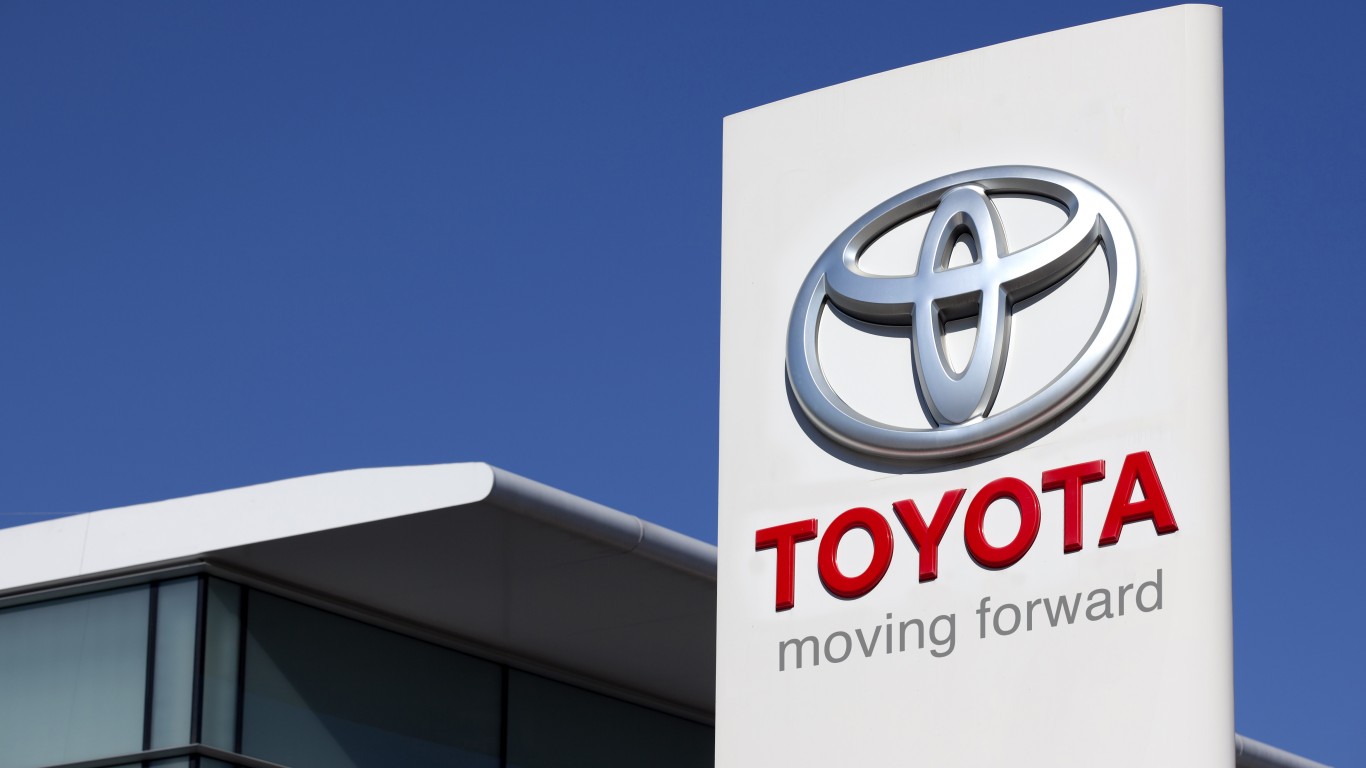Cars and Drivers
Toyota Upset Trump Wants to Undermine Its US Sales

Published:
Last Updated:

Anyone could have anticipated how Toyota Motor Corp. (NYSE: TM) would respond after the White House announced it would protect the American car industry, its employee base and its ability to innovate. Very likely, this move eventually could trigger tariffs that would make Toyota cars and light trucks more expensive in the United States, eroding Toyota’s price leverage with consumers.
[in-text-ad]
The White House statement read in part:
Following an extensive review of the Department of Commerce’s Section 232 automobile report, President Trump today issued a proclamation directing the United States Trade Representative to negotiate agreements to address the national security threat, which is causing harm to the American automobile industry. The Department of Commerce report, delivered to the President on February 17, 2019, concluded that imports of automobiles and certain automobile parts threaten to impair the national security of the United States.
The announcement is officially called an “executive proclamation.”
The administration’s approach is novel. Its threat of tariffs is based on national security, which is a stretch because Toyota makes and markets consumer products, which have never been viewed as a threat to American national security.
Instead of very aggressively challenging the order, Toyota responded:
Toyota has been deeply engrained in the U.S. for over 60 years. Between our R&D centers, 10 manufacturing plants, 1,500-strong dealer network, extensive supply chain and other operations, we directly and indirectly employ over 475,000 in the U.S., and have invested over $60 billion in this country, including over $1 billion in philanthropic and community-outreach efforts. Today’s proclamation sends a message to Toyota that our investments are not welcomed, and the contributions from each of our employees across America are not valued.
Toyota management knows better. It is not, in reality, a question of whether it is welcome, but rather what it can charge for its vehicles compared to its U.S. counterparts, particularly Ford and General Motors. Both have seen their market shares drop for decades, primarily because of the success of Japanese imports. Ironically, American workers now make many of Toyota’s cars in America.
Nevertheless, the administration’s approach to improving the competitive position of American companies is public arm-twisting. Toyota joins a long line of firms that are about to suffer because of that new negotiating method. In its case, Toyota faces the need to raise the price of its cars to make them more “competitive.”
Credit card companies are pulling out all the stops, with the issuers are offering insane travel rewards and perks.
We’re talking huge sign-up bonuses, points on every purchase, and benefits like lounge access, travel credits, and free hotel nights. For travelers, these rewards can add up to thousands of dollars in flights, upgrades, and luxury experiences every year.
It’s like getting paid to travel — and it’s available to qualified borrowers who know where to look.
We’ve rounded up some of the best travel credit cards on the market. Click here to see the list. Don’t miss these offers — they won’t be this good forever.
Thank you for reading! Have some feedback for us?
Contact the 24/7 Wall St. editorial team.